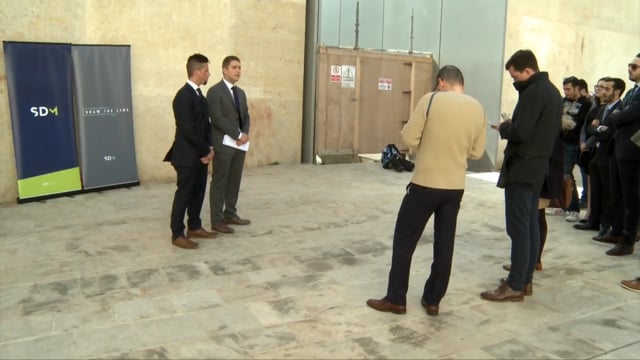[WATCH] Student group to hold anti-bullying course in summer
52% of respondents say they have been bullied at some point in their lives • Student group SDM presents five recommendations to fight bullying at educational institutions


SDM President Ian Zahra said that the group would be holding an anti bullying course during the summer months to assist students to fight bullying safely and effectively.
Speaking at a press conference to close the group’s campaign against bullying “Draw the line”, Zahra said that the group was also presenting five recommendations in a policy document, written out using data from the campaign.
The campaign, which started on the 9th January, had focused on raising awareness about bullying on social media and through events at various educational facilities and it had also featured a survey which was then used to create the recommendations.
“Bullying is not given much importance but the aim is to raise awareness about its incidence particularly in the post secondary environment, and to try and come up with proactive suggestions,” he said adding that some 1,000 students between the ages of 16 and 18 from facilities including Junior college sixth form, MCAST, University of Malta, Sir Anton Refalo in Gozo and the Naxxar higher secondary had participated.
According to the findings of the survey some 52% of respondents said they had been bullied at some point at their educational facility, and some 50% had witnessed incidences of bullying, with the most common form of bullying being cyber bullying.
“Interestingly and positively, over 80% of respondents said they were willing to offer peer to peer help,” he said adding that the recommendation to offer courses to allow young people to face this reality would be a way of building on the encouraging finding
“We will also be working with authorities and psychologists to give students certificates at the end of the course,” he said, adding that the group sought to offer the course on a voluntary basis.
Another measure looks at restorative justice to allow students to solve issues for sufferers and at the same time to assist perpetrators and avoid that they resort to bullying someone else again later on.
Zahra added that funding for research opportunities also needed to be amped up to allow groups to back up research with statistics, after the group itself had found data on the subject rather scarce.
“Online services are now available to allow people to look for guidance on an anonymous basis, and one of our suggestions is to allow these services to get stronger and to also create different parameters for different situations,” he said, stressing that people from different educational facilities would often require different assistance due to the nature of the bullying they are suffering.
Zahra added that another recommendation looked at the concept of ‘counsellors of choice” to allow students to seek help from any counselor, and not necessarily being limited to the ones at their schools. He further suggested that these sessions ought to be made available to students through a fund created appropriately for students, who might not have the means to pay for therapy sessions they want on their own.
Zahra expressed his hope that the recommendations would be followed up by the authorities who were in a position to do so, and he added that the group would continue to push for ways to implement the recommendations themselves.


















.png)


